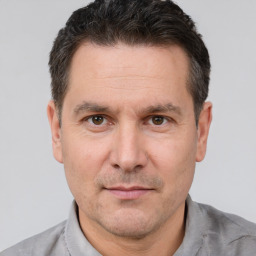Tito
Potenza: the city with a vertical structure
Potenza is an Italian municipality, the capital of the region of Basilicata and the province of Potenza. With its 64,448 inhabitants, it is the largest municipality in the region by population. The city is known as the "vertical city" for its particular urban structure. The historical center of the city is located on the highest hill, while the neighborhoods gradually descend along the same hill.
At 819 meters above sea level, Potenza is the highest regional capital in Italy, second only to Enna. This position also makes the city known as the "city of a hundred stairs" or the "city of stairs", since its urban structure is connected by many ancient and modern stairs. Furthermore, Potenza can boast the largest mobile stairway system for public transportation in Europe and the second largest in the world after Tokyo.
Physical Geography

Territory
Potenza is located in the high valley of the Basento River, between the Li Foj Mountains, in an area with high seismicity. The medieval nucleus of the municipality is located on a hill 819 meters above sea level, while the modern neighborhoods extend along the hill down to the bank of the Basento River. The course of the river has been heavily modified by humans since the second half of the 20th century.
Climate
The city has a Mediterranean and mountain climate, with cool and snowy winters and warm and dry summers. January is the coldest month, while July and August are the hottest.
Origin of the Name
The origin of the city's name has been subject to some theories. According to historian Emmanuele Viggiano, the name Potenza could derive from the Greek word "Potizo", which means "to drink". This is because the city was originally located on the banks of the Basento River and the inhabitants made ample use of it. In Latin, the term "Potentia" would have then originated the current name.
The History of Potenza
Potenza has been the capital of Basilicata since 1806 and in 1982 gave birth to the University of Basilicata. The city has faced many challenges in its history, including a devastating earthquake in 1857 and an air raid during World War II in 1943.
Despite the obstacles, Potenza has also had moments of glory. In 1898, the city was awarded the gold medal as "meritorious decorated city of the national renaissance." In 2005 it was awarded a second gold medal for civil merit.
What to see in Potenza
Potenza has a rich historical and cultural heritage, with many attractions for visitors. Among these, the historical center of the city is very interesting, with its vertical urban structure and numerous ancient and modern stairs. Additionally, there are numerous churches, such as the Cathedral of San Gerardo, the Church of San Francesco, and the Church of Santa Maria del Sepolcro.
The city also hosts numerous museums, including the National Archaeological Museum of Basilicata, the Museum of Natural History of Basilicata, and the Museum of Peasant Civilization. Furthermore, it may be interesting to visit the Castle of Potenza and the Musmeci Bridge, a modern bridge characterized by its particular spiral structure.
Potenza's Events
Potenza boasts a lively cultural life and events, culminating in the Potenza Carnival, one of the oldest and most traditional in the region. Additionally, numerous festivals and events are organized during the summer, including the Festival of 2 Cultures and the Potenza Corto Film Festival.
How to Reach Potenza
Potenza is accessible by car, with the Basentana State Road and the A3 Highway. Additionally, the city is served by the Potenza Centrale railway station, which connects the city to Naples, Salerno, and Rome. The nearest airport is in Bari, about 130 kilometers away.
Conclusions
Potenza is a fascinating and unique city, with its vertical urban structure and rich cultural history. The city offers numerous attractions for visitors, including museums, churches, castles, and modern bridges. Additionally, annual events such as the Potenza Carnival and the Potenza Corto Film Festival make the city even more lively and interesting.
